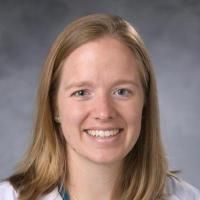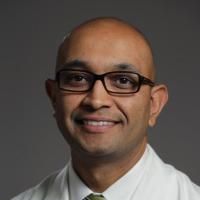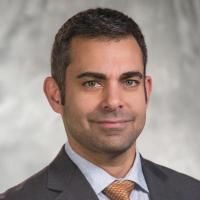Frailty in the End-Stage Lung Disease or Heart Failure Patient: Implications for the Perioperative Transplant Clinician.
Date
2019-05
Journal Title
Journal ISSN
Volume Title
Repository Usage Stats
views
downloads
Citation Stats
Attention Stats
Abstract
The syndrome of frailty for patients undergoing heart or lung transplantation has been a recent focus for perioperative clinicians because of its association with postoperative complications and poor outcomes. Patients with end-stage cardiac or pulmonary failure may be under consideration for heart or lung transplantation along with bridging therapies such as ventricular assist device implantation or venovenous extracorporeal membrane oxygenation, respectively. Early identification of frail patients in an attempt to modify the risk of postoperative morbidity and mortality has become an important area of study over the last decade. Many quantification tools and risk prediction models for frailty have been developed but have not been evaluated extensively or standardized in the cardiothoracic transplant candidate population. Heightened awareness of frailty, coupled with a better understanding of distinct cellular mechanisms and biomarkers apart from end-stage organ disease, may play an important role in potentially reversing frailty related to organ failure. Furthermore, the clinical management of these critically ill patients may be enhanced by waitlist and postoperative physical rehabilitation and nutritional optimization.
Type
Department
Description
Provenance
Subjects
Citation
Permalink
Published Version (Please cite this version)
Publication Info
Bottiger, Brandi A, Alina Nicoara, Laurie D Snyder, Paul E Wischmeyer, Jacob N Schroder, Chetan B Patel, Mani A Daneshmand, Robert N Sladen, et al. (2019). Frailty in the End-Stage Lung Disease or Heart Failure Patient: Implications for the Perioperative Transplant Clinician. Journal of cardiothoracic and vascular anesthesia, 33(5). pp. 1382–1392. 10.1053/j.jvca.2018.08.002 Retrieved from https://hdl.handle.net/10161/29729.
This is constructed from limited available data and may be imprecise. To cite this article, please review & use the official citation provided by the journal.
Collections
Scholars@Duke

Brandi Anne Bottiger
I have been a member of the Cardiothoracic Anesthesiology division and Department of anesthesiology since 2011, caring for cardiac and thoracic surgical patients. I am the current anesthesiology residency director, and past cardiothoracic anesthesiology fellowship director, past medical director of transplant quality at the Duke Transplant Center. My academic interests are in education, CTA content development, and outcomes improvement after lung transplantation.

Alina Nicoara

Laurie D. Snyder
Advanced lung disease, lung transplantation, interstitial lung disease, immune monitoring

Paul Edmund Wischmeyer
Paul Wischmeyer M.D., EDIC, FASPEN, FCCM is a nutrition, exercise, critical care, and perioperative physician-researcher who specializes in enhancing preparation and recovery from surgery, critical care and COVID-19. He serves as a Tenured Professor of Anesthesiology and Surgery at Duke. He also serves as the Associate Vice Chair for Clinical Research in the Dept. of Anesthesiology and Director of the TPN/Nutrition Team at Duke. Dr. Wischmeyer earned his medical degree with honors at The University of Chicago Pritzker School of Medicine, where he was elected into the honor society of Alpha Omega Alpha for outstanding academic achievement. He completed his pediatric internship at University of Colorado Children’s Hospital and his anesthesiology/critical care residency training at the University of Chicago. He also completed a Clinical Pharmacology fellowship and the NIH K30 Clinical Research Scientist Training Program while at University of Chicago.
Dr. Wischmeyer’s clinical and research focus is in critical care, perioperative care exercise, and nutrition to help patients prepare and recover from illness and surgery. His research interests include surgical and ICU nutrition and exercise rehabilitation; role of parenteral, enteral, and oral nutrition to improve patient outcomes; perioperative optimization; post-illness muscle mass and functional recovery; and probiotics/microbiome. His research interests have also recently been focused on COVID-19 research into COVID-19 metabolism, role of probiotics in COVID19 prevention and treatment, and exercise and nutrition programs to recover from COVID-19 and Long COVID-19. Dr. Wischmeyer’s research group has been awarded multiple NIH, DOD, and other peer reviewed grants to perform research ranging from basic mechanistic cell work to large-scale multi-center clinical trials in the fields of critical care, perioperative medicine, nutrition, illness metabolism, microbiome/probiotics, and exercise interventions to improve functional outcomes. For his research work and clinical work, Dr. Wischmeyer has received numerous awards from national and international societies including, The Jeffrey Silverstein Award and Memorial Lecture for Humanism in Medicine from the American Delirium Society, The John M. Kinney Award for the most significant contribution to field of general nutrition, the Stanley Dudrick Research Scholar Award by the American Society for Parenteral and Enteral Nutrition and The Lifetime Achievement Award of the International Parenteral Nutrition Society (IPENEMA) for significant contributions to the field of nutrition. Dr. Wischmeyer has over 200 peer-reviewed publications in critical care, anesthesiology, and nutrition, including in the New England Journal of Medicine. Finally, he has been an invited speaker at numerous national and international medical meetings delivering over 900 invited presentations over his career. He has an H-index of 73 with over 16,500 citations to his work, including 1 publication with > 1000 citations and 55 publications with > 100 citations. He is also the founder and director of the Duke Online Clinical Nutrition Fellowship, an international fellowship to provide clinical nutrition training to healthcare providers worldwide, as well as unique scholarship opportunities for healthcare providers in developing nations.
Dr. Wischmeyer passion for helping patients recover from illness and surgery arises from his personal experiences as both doctor and patient in the ICU. Dr. Wischmeyer has undergone over 27 major surgeries and personally experienced multiple ICU stays due to a childhood GI illness that took more than half of his intestinal tract. Thus, preparation for surgery/critical care and recovery from illness are a way of life for Dr. Wischmeyer that he is passionate about teaching his patients and other caregivers worldwide.

Jacob Niall Schroder

Chetan B. Patel

Kamrouz Ghadimi
Dr. Kamrouz (Kam) Ghadimi is an experienced cardiovascular acute care specialist (cardiovascular anesthesiology and intensive care), established investigator, physician leader, and associate professor of Anesthesiology and Critical Care at Duke Health.
His clinical practice is rooted in the cardiothoracic surgical ICU and operating rooms. He has broad expertise in all topics involving perioperative cardiovascular medicine and intensive care, including the management of acutely ill patients after surgery or those receiving extracorporeal life support (ECLS/ECMO). His specific area of expertise focuses on the enhancement of blood circulation through the lungs and the reversal of bleeding with prevention of thrombosis after surgery and circulatory life support. He has published original research, invited reviews, and guidance documents in several high-impact multidisciplinary journals and networks, including JAMA, Circulation, BMJ, Journal of the American College of Cardiology, Journal of Heart and Lung Transplantation, and Journal of Thrombosis & Haemostasis. He has also published in anesthesiology specialty journals, including Anesthesia & Analgesia, Anesthesiology, Current Opinion in Anesthesiology, and the British Journal of Anaesthesia. Dr. Ghadimi has served on the Editorial Board for the Journal of Cardiothoracic and Vascular Anesthesia since 2018 and has served as a peer reviewer for more than 30 top-medical journals worldwide.
Over his career, he has developed a global multidisciplinary network of collaborators and colleagues in academic medicine, private practice, larger healthcare systems, and offices of the federal government. He has experience with grant funding from a variety of sponsors, including federal, industry, foundation, philanthropy, and institutional sources. He also holds positions on several other national and international committees aimed at improving cardiovascular health in patients undergoing surgery and post-surgical intensive care. He is a selected task force and writing committee member of the 2024 American College of Cardiology and American Heart Association Perioperative Cardiovascular Guidelines. He has devoted the majority of his career to the service of patients requiring cardiovascular perioperative and surgical intensive care.
In addition to a doctorate in Medicine, Dr. Ghadimi holds a Bachelor’s in Economics from Boston University and a Master’s in Clinical Research from Duke University School of Medicine and the National Institutes of Health. He is also an inventor with patents/patents pending, a medical consultant, a mentor, and an investor. He is a founding member and the original academic director of True Learn, an eLearning company focused on board exam preparation for multiple medical subspecialties. This resource is used by many physicians around the country. Beyond developing an educational platform that has reached several thousand physicians and physicians-in-training, Dr. Ghadimi has formally mentored 22 pre-doctorate and post-doctorate trainees, with several mentees continuing their faculty careers in academic practice. In addition, he serves as a resource for a multitude of other physicians, physicians-in-training, and allied healthcare professionals.
Currently, Dr. Ghadimi serves as Director of the Clinical Research Unit for the Department of Anesthesiology at Duke Health, leading a cohesive, high-performing management team that oversees 45 staff working with Anesthesiology faculty and faculty in other departments to operationalize more than 80 innovative research protocols annually (single- and multi-site studies) to advance the fields of perioperative medicine, intensive care, pain management, and brain and heart health. He is leading digital health and artificial intelligence implementation in research workflow to rapidly leverage capabilities for automation and efficiency with the evolving guidance of cybersecurity compliance. He has also led the expansion of the Human Biospecimen Repository within the Department of Anesthesiology, where participants from prospective studies have generously donated biofluids and tissue for the advancement of disease-specific biology and translational research. Dr. Ghadimi is currently involved in the One Duke Gen precision medicine initiative for Duke Health to catalyze high-impact translational discoveries through expansive data-driven partnerships.
Unless otherwise indicated, scholarly articles published by Duke faculty members are made available here with a CC-BY-NC (Creative Commons Attribution Non-Commercial) license, as enabled by the Duke Open Access Policy. If you wish to use the materials in ways not already permitted under CC-BY-NC, please consult the copyright owner. Other materials are made available here through the author’s grant of a non-exclusive license to make their work openly accessible.
